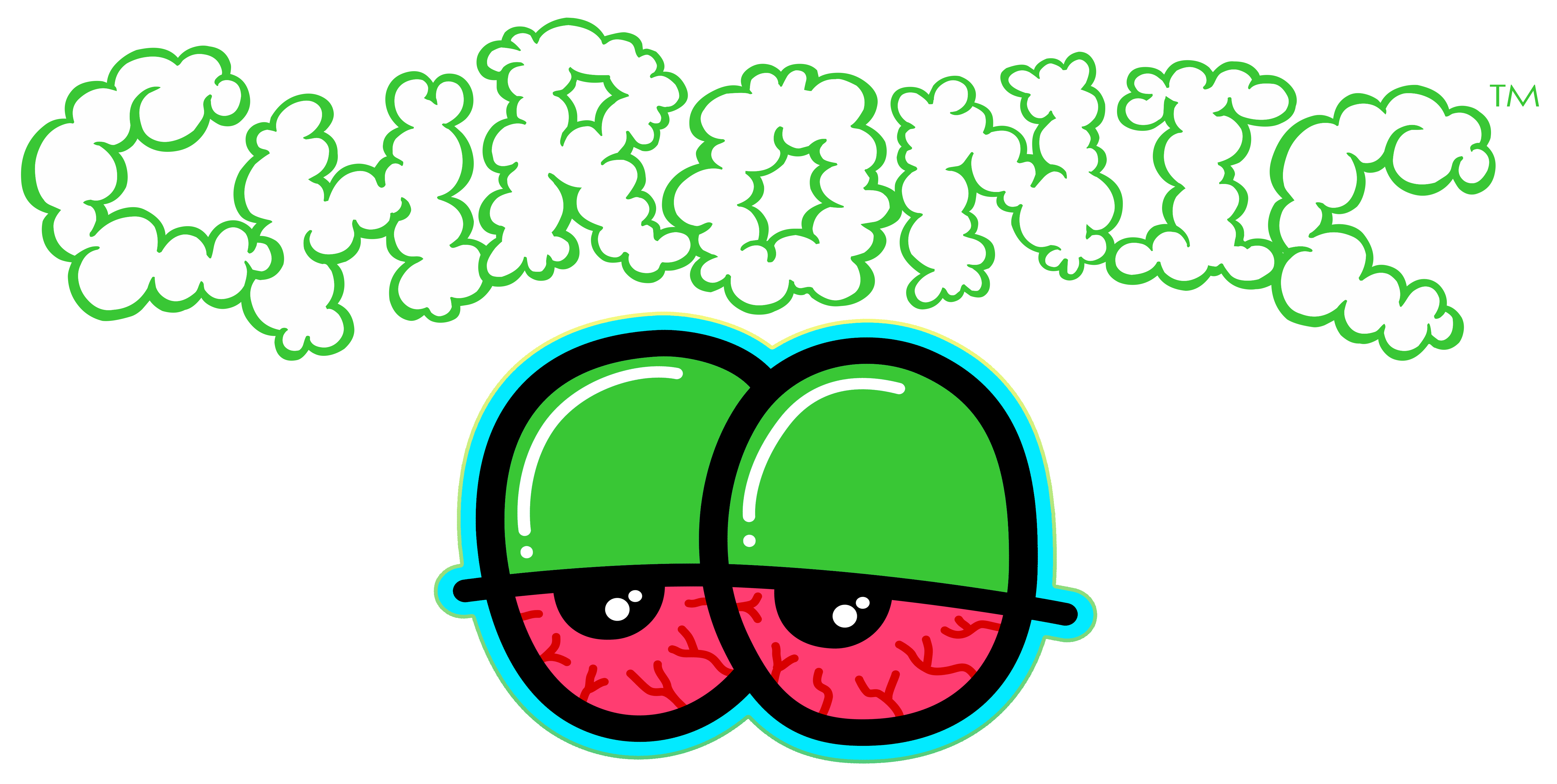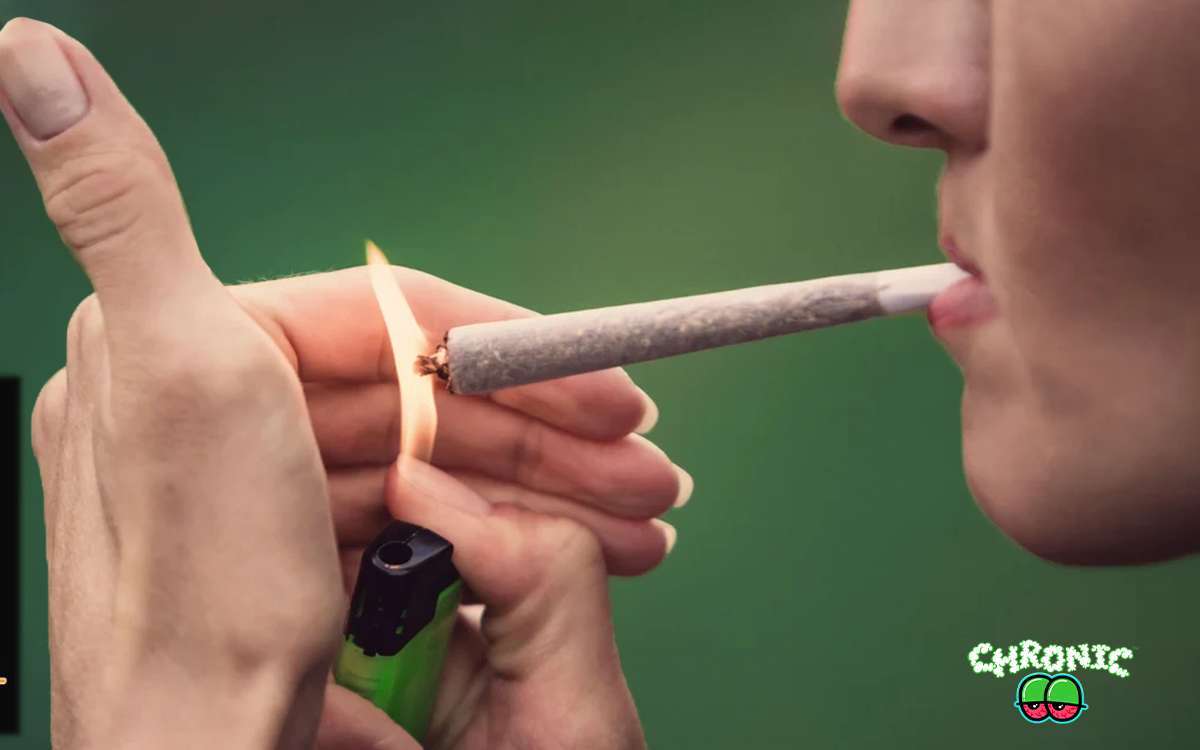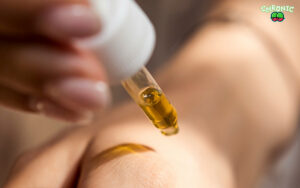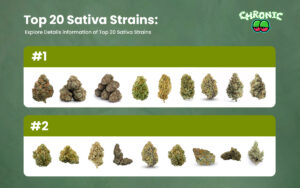Cannabidiol, commonly known as CBD, is an active chemical compound found naturally in the resinous flowering buds of cannabis plants, including hemp and marijuana.
CBD interacts with the endocannabinoid system, which regulates various bodily processes such as mood, pain perception, and immune response. Research on the effects of CBD on the human body is ongoing. For instance, the FDA has approved Epidiolex, a prescription-only form of CBD, for treating specific types of seizures.
While CBD has been investigated for potential applications in managing anxiety, pain, and muscle disorders such as dystonia, current scientific evidence does not strongly support its effectiveness for these conditions. More research is needed to determine its therapeutic potential.
Several countries and states have legalized CBD-related products. In the United States, the 2018 Farm Bill legalized hemp cultivation for hemp-derived products, provided they contain less than 0.3% THC.
However, the FDA maintains that CBD cannot be used as an ingredient in food or dietary supplements, though it is permitted in cosmetics. Consumers should be cautious when purchasing CBD products, whether online or in physical stores, as quality and concentration levels may vary.
Can You Smoke CBD?
Short Answer: Yes! Smoking CBD, or cannabidiol, involves inhaling vapor from either raw or pre-rolled CBD-rich hemp flowers. Laws regarding smoking CBD vary; some states have legalized it, while others have not.
Although hemp-derived CBD products are legal under federal law, they must contain no more than 0.3% THC by weight. However, local laws may differ and could prohibit smoking hemp products. It is advisable to check local regulations before purchasing or using smokable CBD products.
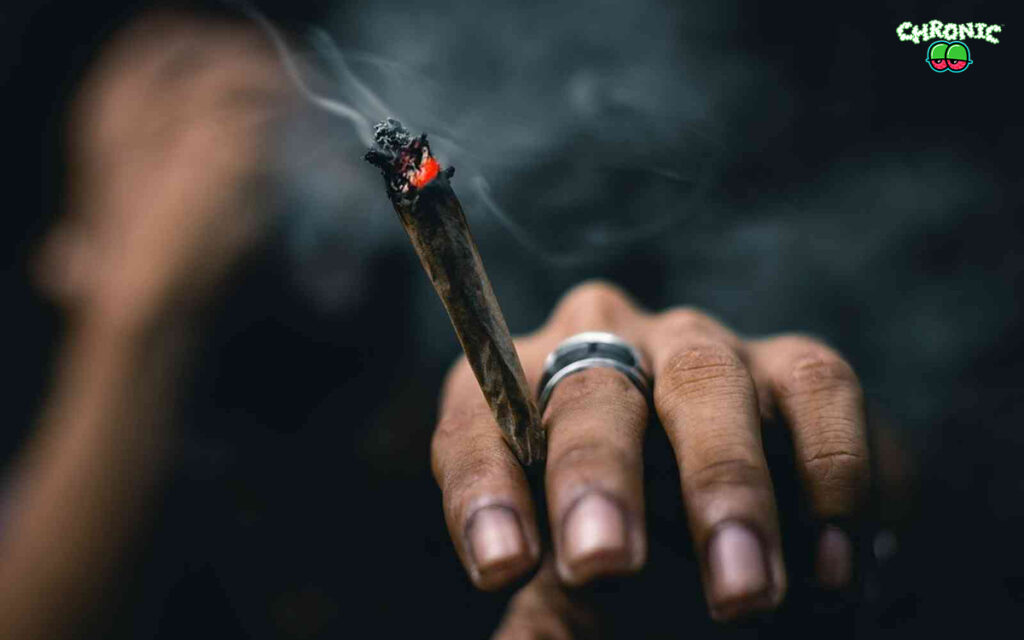
Smoking CBD is a consumption method associated with immediate effects without causing the THC-induced “high.” However, potential respiratory hazards and legal concerns should be considered before choosing this method of consumption.
How to Smoke CBD?
There are several procedures on how to smoke CBD, the one is famous through rolling joints, by use of a pipe, or using a bong.
Smoking should begin with the proper high-quality CBD hemp flower with good amount of THC. The most widely adopted methodological approach is to load a bowl or bong with the flower and then grind it down as equally as possible to expose as much burning area as possible.
Find the rolling papers, so that you can roll a joint with the powdered flower, optionally inserting a ‘filter’ to keep material from entering the mouth. Light up either end of your joint or pipe and take it inside your mouth. Inhale Slowly. Take deep pausing inhalations before exhaling, and repeat.
Read: What are CBD Gummies? In Depth Guide
An alternative method involves vaporizing CBD buds. This process heats the buds just enough to extract beneficial compounds into a vapor without burning the entire plant. Vaporization has become especially popular with materials like CBD flowers because it eliminates the unpleasant by-products associated with smoking. This method works well with vaporizers designed for dry herbs.
Smoking CBD flowers typically involves using quality hemp buds and consuming them through preferred methods such as joints, bongs, or pipes. It’s recommended to start with a small amount, keeping in mind that vaporization may enhance the experience while potentially reducing health risks.
The Legality of Smoking CBD in All 50 States
Legality of smoking CBD (cannabidiol) in USA vary by states. In federal terms, any CBD derived from hemp with less than 0.3% THC is legal; however, the inclusion of cannabidiols in dietary supplements or feed for animals is prohibited by the FDA.
Take a look at summary of 50 states regarding smokable CBD legality as follows:
| State | Legality of Smokable CBD |
| Alabama | Legal |
| Alaska | Legal |
| Arizona | Legal |
| Arkansas | LegalIllegal (smokable CBD products are prohibited) |
| California | Legal |
| Colorado | Legal |
| Connecticut | Legal |
| Delaware | Legal |
| Florida | Legal |
| Georgia | Legal (with restrictions on marketed THC content) |
| Hawaii | Legal |
| Idaho | Illegal (CBD products must contain 0% THC and meet specific criteria) |
| Illinois | Legal |
| Indiana | Illegal (smokable CBD products are prohibited) |
| Iowa | Legal |
| Kansas | Legal |
| Kentucky | Illegal (smokable CBD products are prohibited) |
| Louisiana | Legal |
| Maine | Legal |
| Maryland | Legal |
| Massachusetts | Legal |
| Michigan | Legal |
| Minnesota | Legal |
| Mississippi | Legal |
| Missouri | Legal |
| Montana | Legal |
| Nebraska | Legal |
| Nevada | Legal |
| New Hampshire | Legal |
| New Jersey | Legal |
| New Mexico | Legal |
| New York | Legal |
| North Carolina | Legal |
| North Dakota | Legal |
| Ohio | Legal |
| Oklahoma | Legal |
| Oregon | Legal |
| Pennsylvania | Legal |
| Rhode Island | Legal |
| South Carolina | Legal |
| South Dakota | Legal |
| Tennessee | Legal |
| Texas | Legal |
| Utah | Legal |
| Vermont | Legal |
| Virginia | Legal |
| Washington | Legal |
| West Virginia | Legal |
| Wisconsin | Legal |
| Wyoming | Legal |
Can You Smoke CBD in Public in All 50 States?
In the United States, the legality of smoking CBD in public is variable, state by state, and at local ordinance. Medical and recreational reasons might be used for legalizing the use of cannabis in a few states, generally, public use might still be illegal.
Some states might even expressly prohibit the consumption of all smokable hemp products. Here follows a table that shows whether public smoking CBD is legal as well as the status of smokable hemp products per state:
| State | Public Smoking of CBD | Smokable Hemp Status |
| Alabama | Prohibited | CBD oil legal; smokable hemp status unclear. |
| Alaska | Prohibited | Cannabis is legal; public consumption is prohibited. |
| Arizona | Prohibited | Cannabis is legal; public consumption is prohibited. |
| Arkansas | Prohibited | Medical cannabis is legal; public consumption is prohibited. |
| California | Prohibited | Cannabis is legal; public consumption is prohibited. |
| Colorado | Prohibited | Cannabis is legal; public consumption is prohibited. Smokable hemp allowed. |
| Connecticut | Prohibited | Cannabis is legal; public consumption is prohibited. |
| Delaware | Prohibited | Cannabis is legal; public consumption is prohibited. |
| Florida | Prohibited | Cannabis is legal; public consumption is prohibited. |
| Georgia | Prohibited | CBD oil legal; smokable hemp status unclear. |
| Hawaii | Prohibited | Medical cannabis is legal; public consumption is prohibited. |
| Idaho | Prohibited | Cannabis is illegal; smokable hemp is illegal. |
| Illinois | Prohibited | Cannabis is legal; public consumption is prohibited. |
| Indiana | Prohibited | CBD oil legal; smokable hemp status unclear. |
| Iowa | Prohibited | CBD oil is legal; smokable hemp is illegal. |
| Kansas | Prohibited | Cannabis is illegal; smokable hemp is illegal. |
| Kentucky | Prohibited | CBD oil is legal; smokable hemp is illegal. |
| Louisiana | Prohibited | Medical cannabis is legal; public consumption is prohibited. |
| Maine | Prohibited | Cannabis is legal; public consumption is prohibited. |
| Maryland | Prohibited | Cannabis is legal; public consumption is prohibited. |
| Massachusetts | Prohibited | Cannabis is legal; public consumption is prohibited. Smokable hemp is illegal. |
| Michigan | Prohibited | Cannabis is legal; public consumption is prohibited. |
| Minnesota | Prohibited | Cannabis is legal; public consumption is prohibited. |
| Mississippi | Prohibited | Medical cannabis is legal; public consumption is prohibited. |
| Missouri | Prohibited | Cannabis is legal; public consumption is prohibited. |
| Montana | Prohibited | Cannabis is legal; public consumption is prohibited. |
| Nebraska | Prohibited | Cannabis is illegal; smokable hemp status is unclear. |
| Nevada | Prohibited | Cannabis is legal; public consumption is prohibited. |
| New Hampshire | Prohibited | Medical cannabis is legal; public consumption is prohibited. |
| New Jersey | Prohibited | Cannabis is legal; public consumption is prohibited. |
| New Mexico | Prohibited | Cannabis is legal; public consumption is prohibited. |
| New York | Prohibited | Cannabis is legal; public consumption is prohibited. Smokable hemp products are restricted. |
| North Carolina | Prohibited | CBD oil legal; smokable hemp status unclear. |
| North Dakota | Prohibited | Medical cannabis is legal; public consumption prohibited. |
| Ohio | Prohibited | Cannabis is legal; public consumption is prohibited. |
| Oklahoma | Prohibited | Medical cannabis is legal; public consumption is prohibited. |
| Oregon | Prohibited | Cannabis is legal; public consumption prohibited. |
| Pennsylvania | Prohibited | Medical cannabis is legal; public consumption is prohibited. |
| Rhode Island | Prohibited | Cannabis is legal; public consumption is prohibited. |
| South Carolina | Prohibited | Cannabis is illegal; smokable hemp status is unclear. |
| South Dakota | Prohibited | Medical cannabis is legal; public consumption is prohibited. |
| Tennessee | Prohibited | CBD oil legal; smokable hemp status unclear. |
| Texas | Prohibited | CBD oil legal; smokable hemp status under legal challenge. |
| Utah | Prohibited | Medical cannabis is legal; public consumption is prohibited. |
| Vermont | Prohibited | Cannabis is legal; public consumption is prohibited. Smokable hemp allowed. |
| Virginia | Prohibited | Cannabis is legal; public consumption is prohibited. |
| Washington | Prohibited | Cannabis is legal; public consumption is prohibited. |
| West Virginia | Prohibited | Medical cannabis is legal; public consumption is prohibited. |
| Wisconsin | Prohibited | CBD oil legal; smokable hemp status unclear. |
| Wyoming | Prohibited | Cannabis is illegal; smokable hemp status is unclear. |
10 Benefits of Smoking CBD
Since smoking CBD (such as cannabidiols) has become a very natural remedy to use for wellness benefits, with rapid relief and plenty of potential advantageous outcomes, the following ten are among its best instances:
- Rapid Absorption
CBD is inhaled and then instantaneously delivered into the bloodstream with no delay. Hence, effects will be felt without waiting in the same way as oral edibles or capsules that would keep hanging around elsewhere before working.
- Relaxation and Relief From Stress
Most users claim to feel calm and relaxed after smoking CBD. It works with the endocannabinoid system to promote well-being and stress relief.
- Relieving pain
Everybody knows CBD is an anti-inflammatory agent to deal with issues related to chronic pain, soreness in muscles, and pains in joints.
- Aids in Anxiety
Smoking CBD quickly alleviates symptoms of anxiety. This does not intoxicate and gives a feeling of calmness and uneasiness without getting high ah.
- Improved Sleep Quality
There was studied sedative capacity for CBD that could assist with insomnia disorder and other sleep problems. Before bedtime, smoking CBD can incite a deeper sleep that is more protected and relaxed.
- Support for Recovery from Addiction
Research shows that those quitting caffeine, other drugs, or smoking may also benefit from the effects of CBD in limiting cravings and withdrawal effects.
- Anti-Inflammatory Benefits
The interaction of CBD with receptors in the body effectively reduces inflammation in arthritic or autoimmune cases.
- Enhanced Concentration and Clarity
Alongside improved well-being, CBD keeps the mind free and thus increases focus and productivity as well.
- Natural Alternative to Pharmaceuticals
A person who is using a natural remedy could possibly find this plant-based alternative to pharmaceutical drugs much friendlier with its side effects.
- Non-Psychoactive Relief
CBD indeed offers the therapeutic effects imparted by cannabis without imparting the high effect of THC. It makes it safe to use during the day and for sensitive THC individuals.
FAQ
CBD or Cannabidiol is a natural compound which is derived from hemp and it is known for its therapeutic efficacy. Basically CBD can omit pressure and anxiety and let a person relax without giving him that high feeling, is is also good for inflammation and relieving pain.
These properties make it the first choice for many conditions such as arthritis, soreness in muscles, chronic pain, better sleep for insomnia, and disturbed sleep patterns, and as also proved beneficial in neurological disorders like epilepsy, with a promise in addiction recovery by reducing cravings.
CBD stands for cannabidiol, one of the natural compounds found in the cannabis plant. It is one of over 100 cannabinoids in the cannabis; it is particularly popular for being therapeutic without the intoxicating effects of THC (tetrahydrocannabinol).
Cannabidiol (CBD)-dominant products offer numerous medical benefits without producing the euphoric “high” associated with tetrahydrocannabinol (THC). CBD interacts with the endocannabinoid system, which helps regulate mood, pain, sleep, and inflammation in the body.
CBD induces calming, stress-reducing, and anxiety-relieving effects due to its relaxing properties. It is commonly used for pain relief and its anti-inflammatory effects, making it beneficial for conditions such as arthritis, sore muscles, and migraines. High-CBD products may also enhance focus and mental clarity while maintaining a balance that keeps the user alert.
Additionally, high-CBD products can improve sleep by calming both the mind and body, making it easier to fall and stay asleep. Being non-addictive and natural, CBD is considered a safer option for supporting overall well-being.
Smoking CBD allows you to experience the health benefits of cannabidiol without the psychoactive “high”. This method provides near-instant absorption of CBD into the bloodstream, quickly relieving stress, anxiety, pain, and inflammation.
The most commonly reported effects after smoking CBD include relaxation, mental clarity, and improved concentration. Since CBD is non-intoxicating, it does not impair cognitive or motor functions, making it a safe and natural alternative for supporting overall wellness.
Absolutely! Smoking CBD is possible when the stomach is empty. Interestingly enough, it has been determined that smoking even shortens the onset of effects. Smoking delivers CBD via the lungs directly into the bloodstream, bypassing the digestive system; thus, dietary intake is immaterial for absorption.
